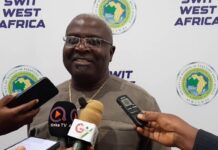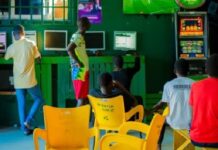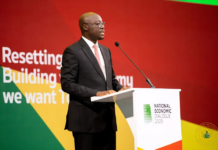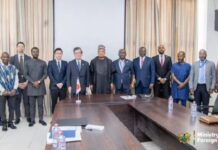
By Ifeanyi Nsofor
Abuja — Nigeria is the fifth country – and the first in Africa – to get Google Station super-fast Internet at selected locations.
Google Station has launched in Nigeria, bringing Internet speeds sixteen times faster than the country’s average of 1.86 megabits per second. It’s as if people who cycle to work are suddenly able to ride a bullet train.
But the initiative’s free high-speed Internet connections are limited to designated shopping malls and the Murtala Mohammed Airport in Lagos State.
To make a real difference in the lives of Nigerians, the company should designate Google Station hotspots in public health facilities across the country. This would make Google Station a game-changer for health in Nigeria, where there are on average four doctors for every 10,000 people and where maternal and infant mortality is among the highest in the world.
Telemedicine – using digital technology for health-care delivery – is a proven means to fast-track quality and patient-centred healthcare. It can assist with training medical students and resident doctors, as well as for managing patients.
Telemedicine is one of the transformations that faster WiFi can enable
Nigeria has already glimpsed the benefits. Shell Nigeria deployed telemedicine to treat workers on its off-shore platforms and to support health-care providers who treat infants at the Obio Cottage Community Hospital in Port Harcourt [the capital and largest city of Rivers State in the oil-producing but impoverished Niger Delta area].
However, the expansion of telemedicine has been hampered by Nigeria’s anemic 1.86Mbps Internet speed. The 30Mbps speed provided by Google Station would make operations seamless.
Google Station should quickly move beyond shopping malls to include medical schools, teaching hospitals and secondary healthcare facilities.
Google Station can also transform the environment for Africa’s digital health innovators. For example, EpiAFRIC holds an annual “Health Meets Tech Hackathon”. But they have had to cope with Internet speeds that sputter along, and brilliant young hackers struggle to bring their ideas to life.
At the last Health Meets Tech Hackathon in Abuja, EpiAFRIC provided connectivity through five different Internet service providers in a bid to overcome the poor speeds. Just imagine the impact of high-speed Wi-Fi at tech hubs where hackathons take place. It would unleash hackers’ ability to develop novel technology solutions to Africa’s myriad health challenges.
At EpiAFRIC’s 2018 Hackathon, nine teams developed technology solutions to improve health in Nigeria despite very challenging poor internet connections. Team Datex developed a mobile technology to improve health-care access in rural areas, connecting remote health workers with specialists in urban centres. Such technology solutions can become a reality across Africa, when governments invest in free, high-speed Wi-Fi for health facilities.
Every year, thousands of Nigerian medical doctors emigrate to the West for better training and access to state-of-the-art technologies for patient care. There are estimates that 25,000 medical doctors of Nigerian origin practice in the United States. Many search for opportunities to transfer their knowledge back home.
Google Station Health could allow for the transfer of knowledge in health-care delivery – and it might even entice some of these émigrés home.
To be sure, use of Google raises data privacy concerns. There are issues with leaks, use of cookies to track a person’s search history and Google’s use of its Analytics product to determine a user’s browsing path. All of this data fuels Google’s advertising success, which generated US$95 billion in 2017.
Google must increase transparency of its use of personal data and ensure it is protected. The government should educate consumers about privacy issues on the Internet. But while these concerns are genuine, they do not overshadow the potential benefits to people’s health.
Nigeria is the first country on the African continent to benefit from this global Google initiative. The choice to launch in Lagos, Nigeria – Africa’s most populous city in its most populous country – was strategic, giving Google the potential to quickly reach millions of users.
The company plans to scale up Wi-Fi access to 200 locations in five Nigerian cities by 2019. But Google should think beyond the commercial benefits of scaling and plan for real social impact.
Indeed, Google Station should waste no time in deploying across Africa, with a special emphasis on augmenting health systems in partnership with African governments to deliver affordable, equitable and patient-centred healthcare.
Dr. Ifeanyi Nsofor is Director of Policy & Advocacy for Nigeria Health Watch, CEO of EpiAFRIC and a 2018 Aspen Institute New Voices Fellow.
























